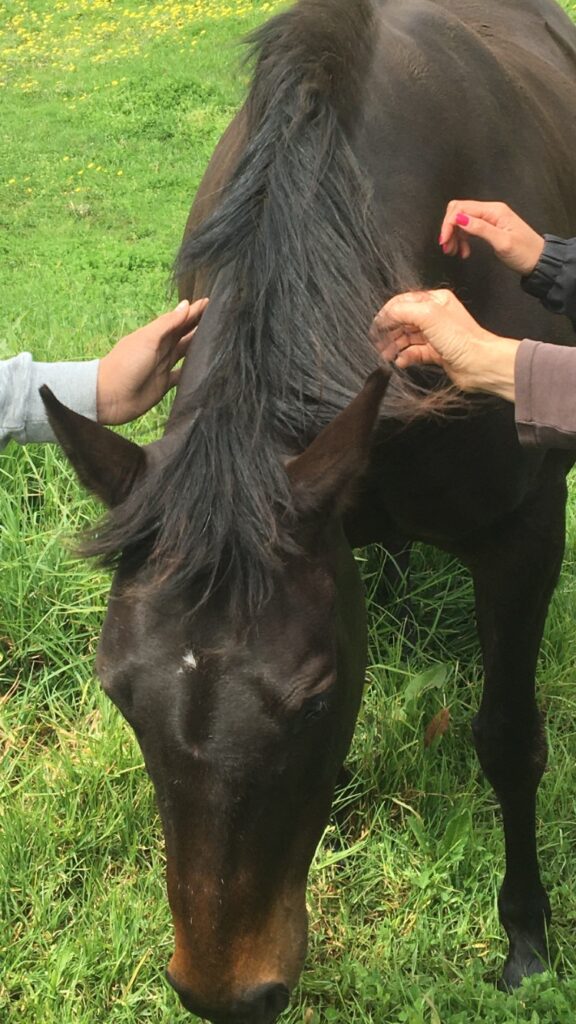
Equine assisted learning and counselling draws on the Horses natural ability to live and respond in the present moment to their environment. Many people have unconsciously adopted learnt behaviours or conditioning to try and cope or adapt to difficult situations and this can lead to losing touch with connection to the here and now. Horses can help evoke a person’s underlying feelings, along with accompanying thoughts, many of which may have led to loss of connection with the core self and the ability to formulate authentic responses.
There are many ways that a horse can evoke enlightenment where another ‘Human’ may not be able to reach. This could be through their aesthetic of natural beauty, strength and power or their ability to be completely present, without judgement, to a person’s experience. The Horse can mirror, as well as model, our behaviours in a way that can give us profound consciousness of our personal behavioural patterns and allow us to gain insight from an uncharted angle.
People have the ability to observe and be consciously thoughtful and when working with horses as co facilitators there is a unique opportunity to access pivotal feelings, beliefs and thoughts. Once awareness starts, choices become more tangible and instead of reacting blindly, the ability to respond with insight starts to emerge. Learning from the inside out, by truly identifying our individual feelings thoughts and belief, and loving ourselves as the unique individual we are, can help us to live a purposeful and empowered life.
The Equine assisted Psychotherapy Model (EPI) combines Gestalt, Somatic Experiencing and Mindfulness, along with the presence of horses, to help people see the possibility of a future self, built on being a co-creator of their own life.
What is the difference between EAL ( Equine assisted learning ) and EAP (Equine assisted psychotherapy) scope of practice?
EAL has 2 key differences to EAP (***EAP is sometimes referred to as Equine Assisted counselling and Equine Assisted Therapy***)
- EAL sessions do not (and should not) deepen into emotional psychotherapy processes such as exploring and integrating past relationships with attachment figures, past trauma or traumatic memories. The EAL sessions stay in the Here and Now work with the client and horses. EAP can shuttle from the Here and Now to the There and Then, depending on therapeutic goals and client assessment. Mental Health practitioners have a range of competencies to support mental health and psychotherapy clients.
- EAL practitioners are not registered allied health professionals, psychotherapists or mental health practitioners and are not qualified, trained or registered to be working with psychotherapy process. EPI Model EAL practitioners know the boundaries between EAP and EAL and offer safe, professional sessions for clients. EAL processes can be extremely valuable for many clients, including children, school groups, adult leadership groups, personal development sessions and NDIS clients.M.Kirby. (2020, www.equinepsychotherapy.net.au). About The EPI model. Retrieved from Equine psychotherapy Institute.
SOME THINGS EQUINE ASSISTED COUNSELLING AND LEARNING IS NOT
- It is not Psychotherapy for horses with emotional issues
- It is not Horsemanship – teaching or training horses for ‘feel good’ or mastery outcomes (even if facilitated by a Psychologist)
- It is not horse riding or teaching a client to ride a horse.
- It is not Hippotherapy where occupational therapists support clients in physical therapy
- It is not RDA (Riding for the Disabled) – where people with physical and intellectual disabilities learn to ride horses and learn horsemanship.
- M.Kirby. (2020, www.equinepsychotherapy.net.au). About The EPI model. Retrieved from Equine psychotherapy Institute.


